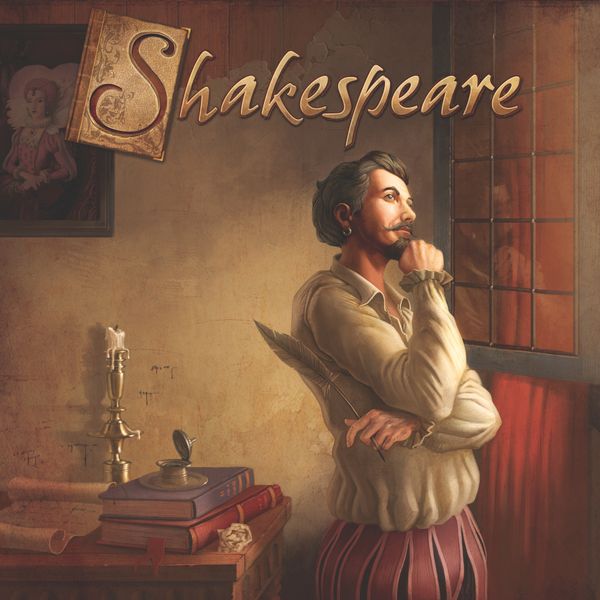Shakespeare (2015) Board Game
Shakespeare is a board game released in 2015 that allows players to take on the roles of theater managers in Renaissance England. Designed by Arnaud Demaegd and Neriac, the game is set in the world of William Shakespeare and his famous plays. With a mix of action points, auction/bidding, open drafting, and solo/solitaire gameplay, Shakespeare offers a unique and immersive experience for 1-4 players.
Game Components of Shakespeare
How To Setup Shakespeare
To set up the game, each player starts with a player board and initial character cards, including Shakespeare and Falstaff. The main board is laid out with the Initiative Track, Prestige Point track, and the three Act tracks. Each player receives a set of cylinders for bidding and activating characters. The game is ready for the six-day production period to begin.
Gameplay Mechanics and Game Objective
Player Experience
In **Shakespeare**, players are immersed in the frantic preparation of a stage production, navigating the challenges of recruiting and managing characters, managing resources, and balancing short-term needs with long-term goals. The game is known for its tight decision-making, particularly in the blind bidding phase, which adds tension and strategy.
Pros
Cons
Personal Thoughts on Shakespeare
**Shakespeare** is a game tailored for fans of Eurogames and those who enjoy strategic planning and resource management. It is not a game for beginners due to its complexity, but for experienced players, it offers a rich and engaging experience. The game’s theme will particularly appeal to those with an interest in theater and Shakespearean history. While it may not revolutionize the gaming landscape, it is a solid addition to any serious board game collection.
We are supported by our audience. When you purchase through links on our site, we may earn an affiliate commission, at no extra cost for you. Learn more.

